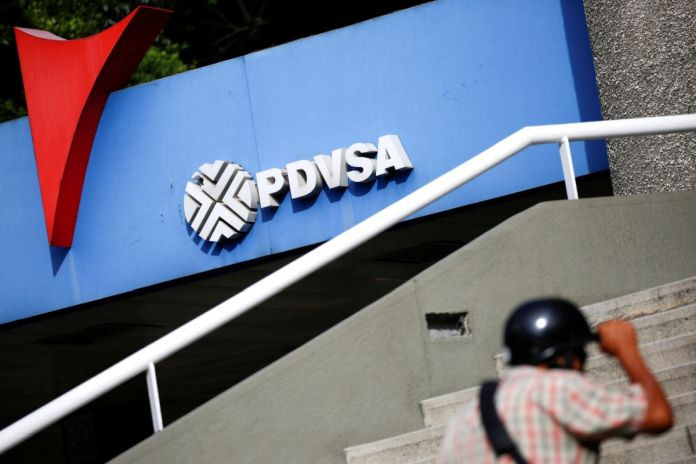Venezuela’s crude production remains stagnated while exports have recovered with the resumption of sales contracts amidst an anti-corruption drive at the heart of the oil industry.
The latest monthly report from the Organization of Petroleum Exporting Countries (OPEC) placed the South American nation’s output at 695,000 barrels per day (bpd) in March, according to secondary sources, similar to the 692,000 bpd pumped in February.
For its part, state oil company PDVSA reported 754,000 bpd, an increase from the previous month’s 704,000 bpd and significantly higher than OPEC’s sources.
Venezuela’s oil industry continues to suffer under Washington’s unilateral coercive measures as well as years of brain drain and mismanagement. Following the 2017 financial sanctions against PDVSA, the US Treasury Department imposed an oil embargo in 2019 followed by secondary sanctions and other threats. The measures drove production from 1.9 million bpd in 2017 to 350,000 bpd in 2020, shrinking the country’s main source of income.
Since late 2021, crude output has slowly recovered hovering around 700,000 bpd with Iran’s assistance. In early April, the Iranian supertanker Sea Star III arrived in Venezuelan waters carrying 2.1 million barrels of condensate to dilute PDVSA’s heavy oil as part of an ongoing swap deal that sees Caracas provide crude in exchange for diluents, machinery parts, and technical support.
Despite oil production struggles, the country’s crude exports have rebounded following a four-month low, shipping a total of 774,420 bpd of crude and fuel in March, surpassing the previous month’s 555,000 bpd. The figure is also the highest average registered since August 2022, according to Reuters.
The recovery reflects the partial resumption of loadings with eight crude carriers setting sail from Venezuelan ports. Shippers had been waiting for authorization since early January when PDVSA president and recently appointed Oil minister Pedro Rafael Tellechea ordered an exports freeze to review contracts following allegations of missed payments from intermediaries. With US sanctions driving away established trade partners, Caracas turned to dozens of unreliable little-known companies to allocate its crude.
Last month, Venezuelan authorities launched an operation against a corruption plot that reportedly saw US $3 billion in crude sales diverted via cryptocurrency schemes since 2020. More than 30 people have been arrested so far. The anti-corruption operation has likewise extended to other state companies and the judicial system, with more than 50 people facing prosecution.
PDVSA has now implemented a new system of fewer contracts and upfront payments while the cryptocurrency mechanisms to collect crude sales seem to be on hold. The first two companies to have their contracts reinstated were China’s Hangzhou Energy and Portugal-based Adinius Sociedade de Servicios.
Venezuela’s renewed oil sales happen as OPEC announced a 1.66 million bpd cut, bringing the total output reduction to 3.66 million bpd while Russia has also committed to extending its 500,000 bpd cut until the end of 2023. The announcements triggered an 8 percent spike in oil prices. On March 31, Venezuela’s Oil Minister Tellechea held a virtual meeting with OPEC Secretary-General Haitham al-Ghais to enhance cooperation and “ensure stability in the international energy market.”
However, the country’s shipments of oil byproducts declined to 276,000 metric tonnes last month, less than the 727,000 tonnes exported in February. According to Reuters, PDVSA has been reviewing accounts of Maroil Trading, owned by longtime shipping businessman Wilmer Ruperti, over an alleged $423 million debt from petroleum coke (petcoke) sales. The audit is part of the anti-corruption drive.
In 2017, Maroil reportedly received rights to 12 million metric tonnes of petcoke, then valued at $138 million under a contract for developing a petcoke rail conveyor system in Venezuela. Since September 2022, the company has also been granted exclusive control of petcoke exports, presumably because it has not been targeted by US sanctions.
An internal source told Reuters that PDVSA has not suspended Maroil as a partner but “is taking steps to remove any commercial exclusivity.” Recently, PDVSA accepted three new petroleum coke buyers who were assigned cargoes in April alongside four other companies that have bought Venezuelan petcoke in the past. The state company negotiated spot prices of around $100 per tonne, above the $43-82 per tonne paid by clients last year.
The exports freeze and anti-corruption probe did not affect the agreement between Caracas and Chevron to exchange oil for debt reduction. In March, the California-based corporation shipped around 115,000 bpd of Venezuelan heavy crude to the US refineries, 80,000 bpd more than in February, adding to the exports boost. The US giant, which holds minority stakes in four joint ventures in Venezuela that total a 200,000 bpd capacity, is urging the Nicolás Maduro government to clean up sediment from Lake Maracaibo (western Zulia state) in order to load more crude.
In November, the US Treasury Department handed Chevron a six-month license to restart pumping and exporting operations from its Venezuela projects after a four-year ban but the deal reportedly limits tax and royalty benefits for the Venezuelan state. In May 2022, Western companies Eni and Repsol received similar licenses but shipments have been irregular.
The Chevron sanctions waiver was the result of the negotiation process between the Maduro government and the hardline opposition in Mexico City – currently on hold – as well as the Biden administration banning imports of Russian heavy crude.
A Washington-based source told Reuters that Valero Energy, the second-largest US oil refiner and a main buyer of Venezuelan crude prior to sanctions, has begun lobbying Washington to obtain a Chevron-style license to resume dealings with the Caribbean country. However, a Valero spokesperson said the corporation has not contacted the US Treasury Department. US officials have repeatedly stated that there will be no more sanctions relief until the Venezuelan dialogue process resumes.
Venezuelan officials have not commented on talks with Valero or any other corporations.





